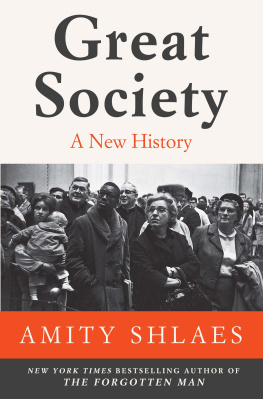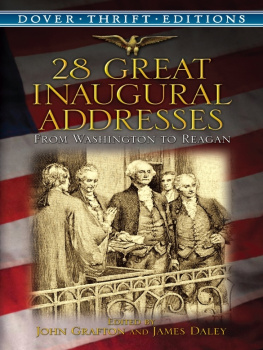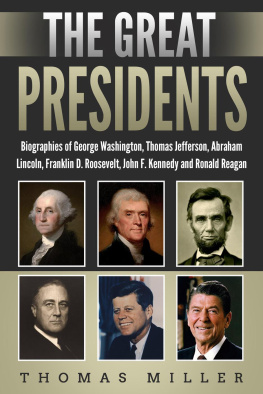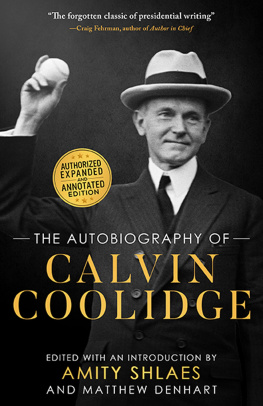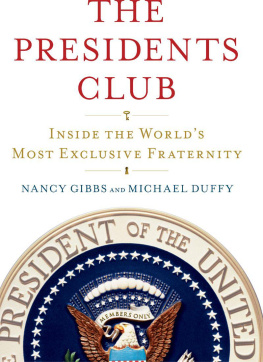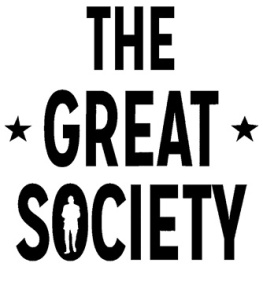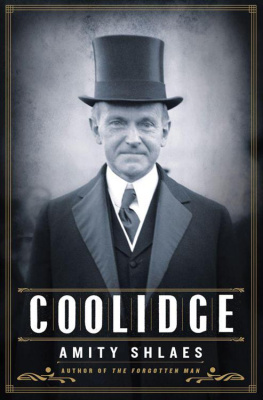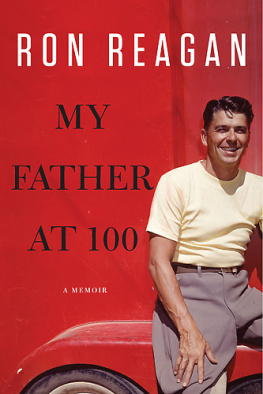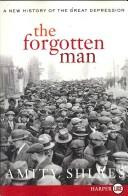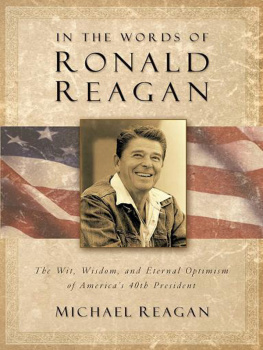For my father,
Jared Shlaes
Contents
Why not socialism?
That was the question on the authors mind as he headed to Washington. He had secured an invitation to lunch with a high official in the new Administration. The president had been in office three months, and he wanted new ideas to distinguish himself from his predecessor. Could the author bring up socialism at the lunch? The very word socialism had been toxic until recently. Socialism inspired murderous dictatorships in Russia and China. In America red baiters called people socialist, sliming their targets and themselves in the process. The taboo was weakening, though. The author actually was a socialist, and proud of the fact. He came from a Catholic family, and the transition from old-time Catholic social service to government social service, and, yes, socialism, felt natural to him. Socialism seemed no threat to a democracy as hardy as the United States. Party leaders in Scandinavia were socialists, and democracy thrived in Scandinavia. Whats more, America was certainly prosperous enough to afford a vast experiment such as socialism. American unemployment was low and heading lower. American business boomed. As Stalin was said to have joked, America was the only country in the world that could afford communism. Socialism could work within one of the major parties. The Democratic Party could be, should be, socialist. To fail to try out socialism was to lack compassion.
Still, the author was not fresh out of college. That month he turned thirty-six, plenty old enough to see that socialism might sound too controversial for the White House. The writer could, however, pitch ideas that took the country toward socialism. In a recent book the author had itemized the kinds of reform America needed. Laws that backed up organized labor so it might represent a greater portion of the American workforce, including black Americans or immigrants from Mexico. Higher minimum wagesthe current levels were a cruel joke. Minimum wages that covered more workers, even those who did not work in an office or full-time. A dramatic change in the training of bigoted policemen in the big cities. A reinvigoration of the poor so that they became a force in political life. America was a country made of classes, the author thought; it just didnt know it. The money was simply in the wrong hands. The writer wanted a tax system that captured the elusive wealth of the superrich. The moment had come to level incomes in a systematic fashion.
Poverty was the obvious lunch theme. Just days before, the president had tapped the authors host to lead a new campaign against poverty. In his State of the Union address, the president had told the country he wanted not only to alleviate suffering but to actually cure poverty. No American leader had ever taken on poverty in this way before. There wasnt even a real poverty office yet, so the new poverty czar worked from a suite at the Peace Corps, which he already headed. The focus of the authors book was the cycle of poverty in one region, Appalachia. The man had also seen poverty in the city where he grew up, St. Louis. In St. Louis the poverty was in part caused by government plans gone wrong, as in the case of the bulldozing of streets people loved in the name of moving them into public housing slums they didnt love. America, the author thought, should invest billions to abolish poverty. It was incredible that America knew so much about poverty and had done so little. The state governments could not do this work. State governments were beholden to retrograde conservative legislatures. For systemic change, the author had come to believe, there was no place to look except toward the federal government.
When the author and the poverty chief met, they discussed the budget for a poverty program. The president was mooting the amount of $1 billion a year. The author couldnt help himself. He was frank. Only a billion? He personally hoped that America would pull together and, in a surge of sentiment, support, if not socialism, then at least a new version of Franklin Roosevelts New Deal. The very name New Deal sounded so grand to young people; you could sell anything to them by invoking it. A billion sounded like nickels and dimes, the author told his host. Oh really? the official answered drily. I dont know about you, but this is the first time Ive spent a billion dollars. Still, the poverty office head was impressed enough to invite the younger man to help out drafting the billion-dollar poverty law.
The chance was too good to miss. The author set aside the socialism and put on a tie. He joined a number of other new hands, many of whom were also still camped out in the Peace Corps office. The poverty team included professors, government officials, and policy people, all producing memos for the new poverty law at assembly-line speed. Their boss set a grueling pace. It was not unusual for the chief to ask for a memo at ten in the evening and suggest that it be delivered later that night. The man put Benzedrine in the air conditioning, one of the authors friends joked. The author worked on an employment proposal. Socialists and centrists could agree on one thing, that unemployment was the greatest source of poverty.
Still, as he sat in the makeshift offices, the author kept returning to what he saw as the problem behind the problem, American capitalism. He and his friend took to concluding their memos with a half-serious line: Of course, there is no real solution to the problem of poverty until we abolish the capitalist system. At one point the author stopped censoring himself and wrote a few lines of what he actually felt: that the abolition of poverty would require a basic change in how resources are allocated. The boss actually took this bold call for redistribution to the president, who, the boss reported, proved remarkably friendly. The boss said that the president, a Roosevelt fan, told him that if serious economic redistribution was necessary to realize the long-delayed completion of the New Deal, then redistribution might be worth it.
Nothing, though, came of the authors radical memo. The writer left the poverty team before the president signed the poverty bill. When the president handed out pens to those who had contributed to the poverty legislation, another staffer went through the line twice so he could collect an extra pen for the absent author. From afar, the author could see that the Democrats on the Hill and in the White House were indeed settling for the beginning of social democracy. Well, the author could tell himself, social democracy was the start.
The story sounds like something that could happen today. But the author, a man named Michael Harrington, made his proposals to the White House in 1964. His book about poverty was a then-famous bestseller called The Other America. The boss who ribbed Harrington about a poverty budget was Sargent Shriver, the brother-in-law of the late president, John F. Kennedy. The president whose poverty initiative Harrington briefly served was Lyndon Johnson. The man who stood in line to collect a pen for his friend was Daniel Patrick Moynihan, both witness to and conspirator in 1960s policy, the same Moynihan who later became the legendary senator from New York.
There were not many self-described socialists in the country in the early 1960s. The Young Peoples Socialist League, the premier socialist youth group, was reporting a doubling across the colleges, but that increase was merely from four hundred to eight hundred members. Still, socialists such as Harrington were far from alone in their insistence on transcendent change. Many Americans ached to make American society over, whether by tinkering or rebuilding, in the name of improving life for all. In the early 1960s the groups that nursed this ambition were diverse. They were university students who hoped to fashion their own utopiaHarrington worked with a new group called Students for a Democratic Society, or SDS. There were union chiefs who sought explicitly to re-create the benefits of Northern European socialism, uppercase or lower, not just for union members, but also for the nation at large. There were government officials such as Shriver who believed the right president could indeed lead the country in epic reform. There were engineers who envisioned transformation through technology. There were businesses that thought great corporations would lead in raising the standard of living for all. Typical was General Electric, whose motto was Progress is our most important product. There were factory workers whose lives had improved in the 1960s and who hoped to finally make it into the middle class by the 1970s. There were priests, ministers, and rabbis who sought collective spiritual renewal in aspects of life far beyond their pulpits. There were civil rights leaders like Martin Luther King, who dreamed of a time when race would no longer matter.

